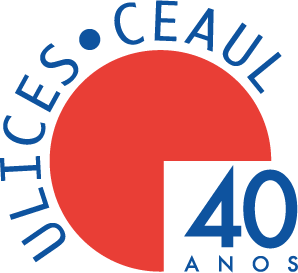The ultimate aim is to better understand, describe and explain the role of translation in society, considering its context and conditioning factors, with a special emphasis on English as source language for translation in Portugal.
In terms of methods, RG6 holds general meetings, where individual and group research projects’ ongoing work is presented and discussed so as to foster dialogue and synergies among the related but still distinct fields of literary, audiovisual, ESP translation represented by members. Subgroup project meetings are also scheduled as often as needed in order to present and discuss results and problems as well as to plan future tasks. Meetings are also held in order to provide feedback on individual research and supervision to doctoral students as well as to discuss new research projects, exchange information on applications for competitive funding.
Keywords: Translation and Reception Studies; Literary Translation; Audiovisual Translation; ESP Translation.
Specific aim and scope of research (object definition, main research questions, theoretical and/or applied)
In order to understand, describe and explain what translation is, and address its conditioning factors and its impact, RG6 has several concrete goals:
(1) Contributing to translation production and research with the FCT-funded project “Remembering the Past, Learning for the Future: Research-Based Digital Learning from Testimonies of Survivors and Rescuers of the Holocaust”, website: https://holocaustinportugal.letras.ulisboa.pt;
(2) and the EU-funded project DECONSTRUCT: Digital Education and Campaign to Stand up and Counter Holocaust Distortion and Misinformation (CERV-Equal 2023), website https://deconstuct.letras.ulisboa.pt;
(3) Mapping Translation in Portugal, by continued participation in the joint ULICES-CECC project “Intercultural Literature in Portugal, 1930-2000: A Critical Bibliography” (in partnership with CECC-UCP). For more information, see http://www.translatedliteratureportugal.org/eng/index.htm
(4) Describing accessibility practices in Portugal with the project “Accessibility in Portugal: Practices in Public Broadcasting Channels”;
(5) Supervising ongoing doctoral and post-doctoral research projects in Translation Studies on translational norms regarding linguistic variation in literary and audiovisual texts, the influence of paratexts in translation reading strategies, on the role played by translation in importing literary and non-literary genres, especially within the current framework of the hegemony of the English language;
(6) Making research results available, in Portugal and abroad, by organising national and international scientific events in Translation and Reception Studies, such as promoting regular talks (Translation Cafe, ETC… Talks on Translation Studies) as well as conferences “Jornadas de Estudos de Tradução” (JET), organizing international scientific events and panels in international conferences; and by coordinating or participating in high impact and visibility publications;
(7) fostering international cooperation, by welcoming foreign trainees (temporary) and integrating new high-quality doctoral or postdoctoral researchers into RG6; participating in international associations, and editorial boards of international series and journals; and
(8) encouraging the preparation of research projects and the submission of applications for national and international competitive funding.
For more information on the group’s activities, please consult its research blog: https://receptionandtranslationstudiesrg6.blogspot.com



